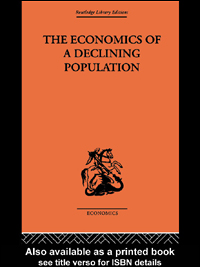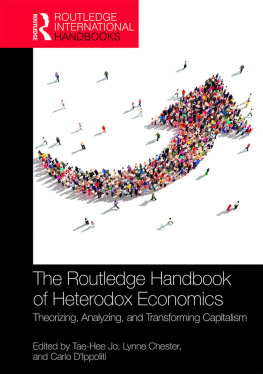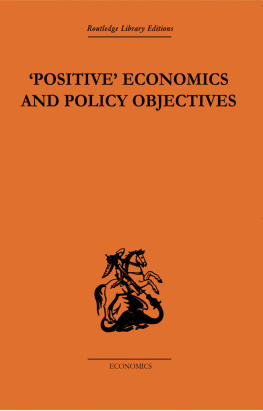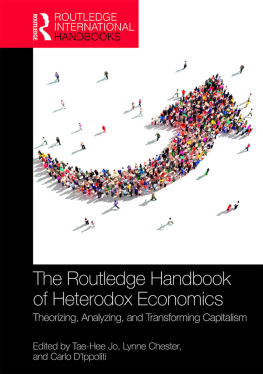Cover

| title | : | The Economics of a Declining Population Welfare Economics and Economic Policy ; V. 6 |
| author | : | Reddaway, William Brian. |
| publisher | : | Taylor & Francis Routledge |
| isbn10 | asin | : | 0415314089 |
| print isbn13 | : | 9780415314084 |
| ebook isbn13 | : | 9780203009376 |
| language | : | English |
| subject | Unemployed--Great Britain, Income--Great Britain, Finance--Great Britain, Great Britain--Population, Great Britain--Economic policy. |
| publication date | : | 2003 |
| lcc | : | HD5765.A6R43 2003eb |
| ddc | : | 330.941 |
| subject | : | Unemployed--Great Britain, Income--Great Britain, Finance--Great Britain, Great Britain--Population, Great Britain--Economic policy. |
Page i
Routledge Library Editions
THE ECONOMICS OF A DECLINING POPULATION

ECONOMICS
Page ii
Routledge Library EditionsEconomics
WELFARE ECONOMICS AND ECONOMIC POLICY
In 8 Volumes
I | Essays in Economic Management | Cairncross |
II | Keynes, Beveridge and Beyond | Cutler et al |
III | Some Aspects of the Inequality of Incomes in Modern Communities | Dalton |
IV | National Income and Social Accounting | Edey et al |
V | Political Arithmetic | Hogben |
VI | The Economics of a Declining Population | Reddaway |
VII | Welfare and Competition | Scitovsky |
VIII | Papers on Welfare and Growth | Scitovsky |
Page 1
THE ECONOMICS OF A DECLINING POPULATION
W B REDDAWAY

LONDON AND NEW YORK
Page 2
First published in 1939
Routledge is an imprint of the Taylor & Francis Group
This edition published in the Taylor & Francis e-Library, 2004.
All rights reserved. No part of this book may be reprinted or reproduced
or utilized in any form or by any electronic, mechanical,
or other means, now known or hereafter invented, including photocopying
and recording, or in any information storage or retrieval system, without
permission in writing from the publishers.
The publishers have made every effort to contact authors/copyright holders
of the works reprinted in Routledge Library EditionsEconomics. This has
not been possible in every case, however, and we would welcome
correspondence from those individuals/companies we have been unable to trace.
These reprints are taken from original copies of each book. In many cases
the condition of these originals is not perfect. The publisher has gone to
great lengths to ensure the quality of these reprints, but wishes to point
out that certain characteristics of the original copies will, of necessity, be
apparent in reprints thereof.
British Library Cataloguing in Publication Data
A CIP catalogue record for this book
is available from the British Library
The Economics of a Declining Population
ISBN 0-203-00937-1 Master e-book ISBN
ISBN 0-415-31408-9 (Print Edition)
Miniset: Welfare Economics and Economic Policy
Series: Routledge Library EditionsEconomics
Page 3
THE ECONOMICS OF A DECLINING POPULATION
BY
W.B.REDDAWAY
M.A.
Clare College, Cambridge
LONDON
GEORGE ALLEN & UNWIN LTD
MUSEUM STREET
Page 4
FIRST PUBLISHED IN 1939
SECOND IMPRESSION 1946
ALL RIGHTS RESERVED
PRINTED IN GREAT BRITAIN BY
BRADFORD & DICKENS
LONDON, W.C.I
Page 5
PREFACE TO THE SECOND IMPRESSION
THIS book has been out of print since 1941, when the remaining stock was destroyed by enemy action. In view of the current interest in population questions the publishers have allotted a part of their paper ration to the production of a new edition.
Several factors have combined to make this new edition simply a reproduction of the old. Firstly, as a member of the Economics Committee of the Royal Commission on Population I feel it would be inappropriate for me to publish anything fresh on the subject until the Commission has presented its report. Secondly, there is in fact nothing which I want to alter in the fundamental analysis, whilst any attempt to bring the illustrative statistics up-to-date would be of little value until the war is over. Finally, the war-time shortage of printing facilities encouraged the use of a photographic method to give, literally, a reproduction of the first edition. As a consequence, of course, all statements which appear in the present tense must be read as referring to 1939.
One point does, however, seem to deserve even more emphasis than it receives in the text, because the war has made it more important. On pages 21819 the point is made that if our population were still increasing at the old rate, then we should be perpetually having to find more outlets for our exports in order to pay for our increased import requirements. The difficulty of doing this on satisfactory terms seemed great enough even before the war to make the absence of population increase a real relief. We are now officially told that such factors as the sale of our international assets and the piling-up of international debts call for a 50% increase in our pre-war exports even with our present population. We can indeed be thankful that this formidable task is not rendered ever more difficult by the necessity for a further increase to cover the needs of a rapidly rising population.
W.B.R.
Cambridge,
February, 1945.
Page 6
This page intentionally left blank.
Page 7
PREFACE TO THE FIRST EDITION
THE economic consequences of our changing population are matters in which many classes of people take a lively interest. To the aspiring writer on the subject this is both a great encouragement and a great difficulty. For some of the topics to be discussed lend themselves readily to a popular treatment, whereas a proper analysis of others really requires an extensive use of advanced economics. (It is almost impossible, for example, to examine the effect of a declining population on unemployment unless one has a clear idea of what determines its level now.) Consequently any single book is in danger of falling between at least half a dozen stools.
Next page








